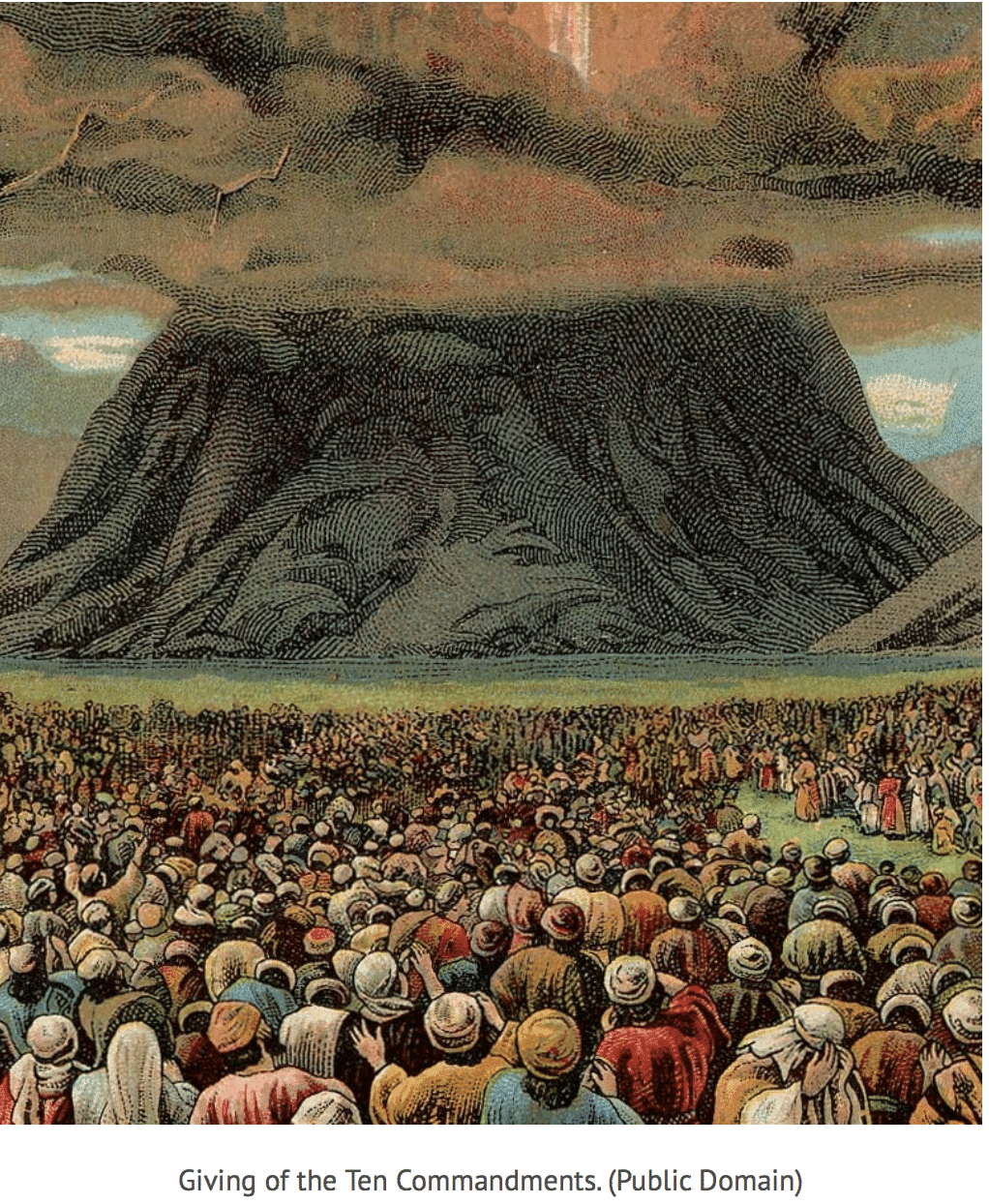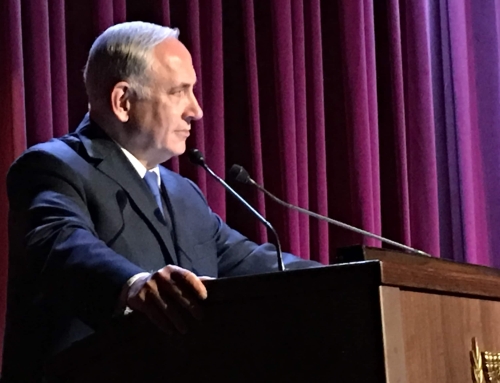By Bob O’Dell, co-founder Root Source

I still shake my head sometimes about the fact that I spent twenty five years working daily with Israeli Jews, and visited Israel over 30 times, without ever knowing the massive extent of Jewish persecution by Christians. All I really knew about was the Crusades. I had no idea about Martin Luther’s role in the Holocaust, for instance, and I certainly didn’t know about the deplorable history of the church since the time of Constantine.
Not only was the history shameful, the church had fallen prey to the conspiracy of silence, whereby uncomfortable facts are left unstated. We are all prone to that tendency, but I had to ask myself how I lived fifty years of life, partaking in perhaps a dozen streams of the Christian faith, without knowing the extent of the truth.
Once I discovered some of this truth for myself in 2013, I began to ponder which of the Ten Commandments was most closely associated with anti-semitism, and which of them were broken in the historical persecution of Jews by the Church. But as my knowledge of the tragedy increased, I kept changing my mind, until finally I threw in the towel and had to admit that we broke everything. We broke all ten.
We or They?
Many Christians have questioned whether true Christians could be responsible for the kind of Jewish persecution that happened. I understand the charge being made that real Christians would have never done those things. But, I beg to differ. We must include ourselves in the “we.”
First, we cannot emphatically say that “we” who are alive today, had we been living the same lives of those who came before, steeped in the same environment, commanded by our priests, pastors and family members to join them in harming Jews, would have been willing to disobey orders, stand up against the tide of hate, and risk harm to ourselves from the Christian community. We simply cannot know that.
Second, we cannot emphatically say that the mercy of God, the forgiveness of God, is unable to reach and forgive those who do terrible things, and we can’t possibly know who cried out for forgiveness later in life.
And thirdly, while we soundly condemn their actions, when it comes to them as persons we need to heed the words of Yeshua and Paul who warned us to “judge not that we be not judged.” Matt. 7:1-3 and Romans 2:1.
Therefore, I say we must own the idea that we Christians did these things, we and our forefathers. This is the same decision that Nehemiah took, when in Susa he heard about the problems in Jerusalem, both past and present, and prayed: “I and my father’s house have sinned.” Nehemiah 1:6.
Then of what sins are we culpable? Since the list of the Ten Commandments vary slightly, I have chosen to use a Jewish list and translation listed in the ArtScroll Chumash for Exodus 2
We Broke All Ten
One. To have faith in God’s existence, that He is eternal, and has complete and unfettered power: “I am Hashem, your God, who has taken you out of the land of Egypt, from the house of slavery.”
The fundamental basis of persecution over the centuries, in my opinion, results from unbelief in God’s unfettered power to complete the process He started in Egypt. We believed God’s plan for the Jews was over. We limited His ability to write a story that brings the Jewish people out of slavery (again) after the destruction of the temple in 70 AD. We saw His promises as temporal rather than eternal.
Two. Prohibition of Idolatry: “You shall not recognize the gods of others in my presence. You shall not make for yourself a carved image…”
The good news of the Christian faith is not the death of the Messiah, but the resurrection of the Messiah. However, the attacks against the Jews centered around the death of Jesus, often holding up the Cross during such attacks. Those crosses were made of wood, carved by men, and were never used in the early days of Christianity. Constantine, who legalized Christianity across the Roman Empire, was obsessed with the “death of Christ” and began to focus much of his attention on the physical Cross, rather than on Christ’s resurrection. What resulted from this obsession? Death. In the last two years of his life, Constantine killed his own son to prevent him from succeeding him as Emperor, and then murdered his wife. Historically it was Constantine’s focus on “death” and “the Cross” that sparked Christian interest in the physical symbol of the Cross that is still present today. (See Constantine’s Sword, by James Carroll, pp. 199-203).
I believe that the historical use of carved images of crosses is idolatry, placing Yeshua’s death ahead of resurrection. I do not say that all uses of that symbol are idolatry today, I am speaking generally. But even if you do not agree with me that the cross could ever be party to any form of “idolatry”, you cannot disagree with the historical result: our Christian focus on the Cross has resulted in the massive death of Jews. Yeshua said: “Wisdom is vindicated by her deeds.” Matt. 11:9.
Three. Prohibition of vain oaths: “You shall not take the Name of Hashem, your God, in vain.”
While people differ on what it means to transgress this commandment, I believe the shouting of “Christ killers”, or any kind of assertion that the Jews “killed God”, crosses the line. Yeshua said about His life and upcoming death: “No one has taken it away from Me, but I lay it down on My own initiative.” John 10:18.
Four. The Sabbath: “Remember the Sabbath day to sanctify it.”
While I personally believe the true Sabbath is as the Jews define it: Friday sundown to Saturday sundown, my judgement of wrongdoing by Christians is not based on that, but in the lack of sanctifying whatever Sabbath is chosen. The transgression? Jews were historically killed every day of the week by Christians: weekdays Monday through Friday, on our Sabbath, and on theirs. We took no day rest from our sins against Jews.
Five. Honoring parents: “Honor your father and your mother.”
In Luke 16, Yeshua spoke of Abraham as an active participant in heaven, holding and comforting those Jews who have died. We Christians are taught that we have been grafted into Abraham’s family through God’s great mercy and grace, and that we are considered by God to be “sons of Abraham” and “daughters of Sarah” along with the Jews. When a man dishonors his brother, he dishonors his parents as well. Thus, by persecuting Abraham’s children, we dishonor our father Abraham, and our mother Sarah.
Six. Prohibition against murder. “You shall not kill”.
We Christians murdered Jews.
Seven. Prohibition against adultery: “You shall not commit adultery.”
We Christians raped Jews.
Eight. Prohibition against kidnapping: “You shall not steal.”
We Christians have stolen from Jews. We have stolen massive amounts of property from Jews, but in the larger sense we held their lives hostage to a series of restriction on how they can make a living, and on their personal freedom. Jewish commentary tells us the worst kind of stealing, is to kidnap another human being, because it literally steals a life. We have even kidnapped Jews in this literal sense as well.
Nine. Prohibition against bearing false witness: “You shall not bear false witness against your fellow.”
We Christians made up evil stories about how Jews were stealing Christian children and engaging in ritual killings of them. Then we charged that Jews were using the blood of these innocent children in their own passover meal preparations, and tainting the bread used in Christian communion by stealing communion bread from churches and returning it before it was consumed. We even blamed tragedies like the Black Plague on the Jews. Today Christians fabricate and propagate stories about how Jews routinely oppress Palestinians.
Ten. Prohibition against coveting: “You shall not covet your fellow’s house, etc.”
This may be the most common sin of all, because it is a sin of the heart. We who are not Jews have coveted to be “God’s chosen people,” coveting the “Jewish blessing” if you will, and have formulated theological ideas, like Replacement Theology, to try to obtain that which we covet.
Wrap-up
When I discovered that we broke all ten commandments in 2013, I honestly did not know what to do.
What will you do?
If you have previously dealt with this truth, perhaps you will consider sharing your personal story of what did you do, or what are you doing?
Next week, God willing, I hope to share my own story of what happened next.







Leave A Comment